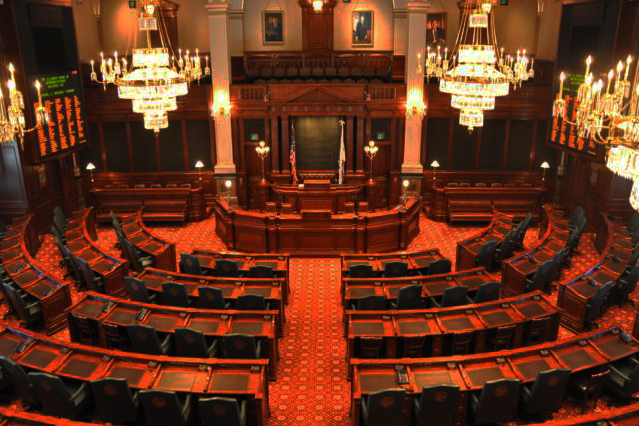After District 204 and other suburban districts dodged the negative fiscal implications of Senate Bill 16, the School Funding Reform Act of 2015, also known as Senate Bill 1, has been submitted and discussed over the last couple months. Senate Bill 16 proposed a $10.1 million reduction of funding to District 204 while Senate Bill 1 could now potentially cause the district to lose $5.8 million.
In both cases, District 204 stands to lose state funding, an idea faculty members, students, and district officials oppose. Along with District 204, many other districts, like District 203, will be negatively affected by Senate Bill 1. “Senate Bill 1 would put District 203’s high academic achievement, quality staff, and excellent programs at risk,” District 203 superintendent Dan Bridges said.
Likewise, District 204 believes the bill itself, proposed by Senator Andy Manar, “falls short” in terms of how to adequately redistribute funding in Illinois equally. Both District 204 and District 203, along with many suburban districts and residents, believe that the biggest problem lies in the so-called adequacy grants, which would provide extra funding to affected schools.
The grants themselves would need separate legislation and voting procedures and are not part of Senate Bill 1, something both District 204 Superintendent Karen Sullivan and District 203 Superintendent Dan Bridges fear legislators can be easily swayed to cut money when it is unnecessary, potentially leaving District 204 and 203 short funds and without proper aid.
Many educational forums and meetings have taken place across Illinois with over 400 superintendents attending along with concerned parents and educators. Although productive, students believe that the crux of the Illinois’ educational system is that it is broken and contains many loopholes.
It is clear: Senate Bill 1 is a microcosm of Illinois’ disastrous educational system. Financial power must be taken away from politicians and special interest groups and placed in the hands of families, superintendents, and educators. As long as politicians and special interest groups direct the system, the system won’t be accountable but more about the dollars and who controls them.
The only real solution seems to be that Illinois must transition into a new educational system. As daunting as it may seem, alternatives already exist and have been proven effective throughout the country, including in neighboring states like Wisconsin and Indiana.
According to Illinois policy analyst John Klinger, placing power in the hands of families and superintendents would eliminate corruption, increase transparency, and empower families to hold schools accountable. “It’s time for parents to control the flow and distribution of money in education. Only then will the struggle be about what really matters – how to educate Illinois children,” Klinger said.
By Nirmal Mulaikal




James Povilonis • Apr 26, 2015 at 10:08 pm
Just so you know, the picture you currently have for the article is of the United States House Chamber (in Washington, DC), whereas I think you want the Illinois one (for example: http://www.thenewcivilrightsmovement.com/1-illinois-decides-to-not-vote-on-marriage-equality-bill-until-november/politics/2013/05/31/67826).
Thanks!
A Noble Friend • Apr 22, 2015 at 12:53 pm
Senate Bill 1 is necessary for the state but not the people. The bill does have cuts that affect the district but after Rauner got elected everything changed. Republicans want to conserve money while democrats want to help everyone out with the same money. Senate Bill 16 got avoided because Democrats had a strong stand in politics. Rauner wants to earn more money even though he has a lot of it. The political ads is one of the examples. If the congressmen really want to help the state, they should tax the wealthy more and handover to the education system to the people who really deserve it. If the government passes the bill then it will affect the district. In result, the district would have to lay people off and this would increase the unemployment significantly. The state needs to think about the long term, the future, if they do pass this bill, the state would be going nowhere. At the end, this would prove disastrous to the districts and the state. Finally, the state should end the corruption in themselves and then they should try to fix the problems in the state.
Nice Article, Nirmal.
A Noble Friend • Apr 22, 2015 at 12:54 pm
*handover the education system